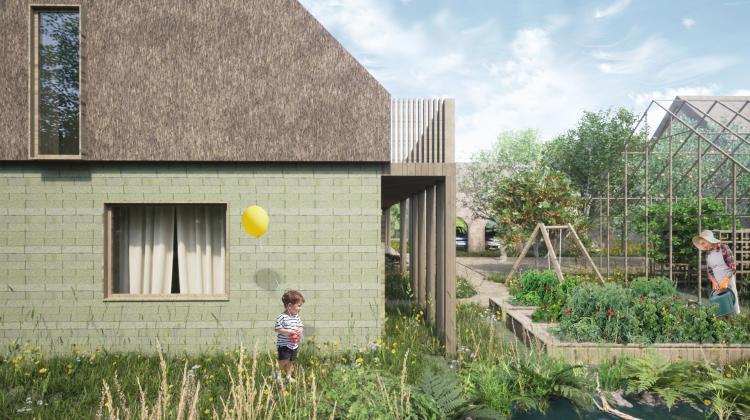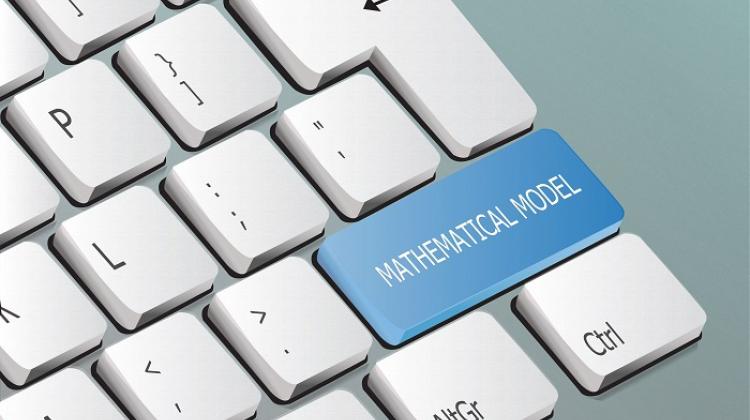Five medals for young Polish scientists in Stuttgart

Camera stabilizer, which allows to make smooth recordings, for example of acrobatic routines, has been designed by ICYS 2017 silver medallist. Young Polish inventors brought four more medals from Stuttgart.
Physics enthusiasts from 33 countries and their tutors presented their projects on 16-22 April in Stuttgart, Germany.
"I do extreme sports, including cycling and scooter tricks, freeride. I also run a blog where I post videos and photos. Unfortunately, I have never had smooth shots I wanted to have. Since I designed and built the device I called SteadyCam, my problem is over" - said Jakub Koszowski, a member of the Quark Creative Group, who represents Poland in many competitions in Poland and abroad every year.
His device helps to record smooth shots while running, skateboarding or skiing. It is a physical pendulum with strongly dampened vibrations. This pendulum can rotate in every plane because all bearings have exactly one degree of freedom and are located in perpendicular planes. The stabilizer is effective when it does not transfer the hand vibration to the camera and it is difficult to force it out of its equilibrium position. According to the constructor, the device is simple to build, easy to handle and lightweight, allowing to use it for a long time. The stabilizer smoothes shots. One of Koszowski\'s showcase videos is titled "360 Degrees".
Another silver medal in the category of Physics was awarded to Karol Białas for examining instability on the surface of ferrofluid, the liquid attracted by a magnet. Ferrofluid is used, for example, in speakers for cooling or damping components. When the magnetic field is strong enough, hilly structures begin to appear. They can arrange in regular lattices composed of hexagons or squares, depending on the conditions. Young science enthusiast explains these structures with energy minimization.
"In my research, I also looked at another type of instability: when the ferrofluid is squeezed between smooth plates and the magnetic field is applied, labyrinth-like patterns can be observed. Their most interesting property is that their shape changes so that the genus remains unchanged" - Karol spoke about his project.
Another silver medallist in the same category was Mikołaj Kawaler, who became fascinated by the piezoelectric effect used to produce electricity from sound. The young physicist explores energy recovery in this unconventional way, and his experiments are carried out in the laboratories of the University of Silesia. He has built a device that lights up a diode with energy recovered from his own voice.
"The key to success in my model was to focus on a particular sound frequency and use acoustic resonance. Studying the spectrum of my voice and selecting the specific frequency, for which the model was built, allowed me to achieve such an impressive result. I used three tubes terminated on one end with a diaphragm, in the middle of which attached are the piezoelectric elements, connected in series after rectifying the alternating current they produce. Diaphragm vibrations cause the movement of small pendulums, which collide with piezoelectric plates, further reinforcing the effect.
Bronze was awarded to Karol Pierzchała from Racibórz for examining the wave and spiral structures formed on a thin layer of liquid flowing on a rotating disc. In the Physics and the Environment category, Julia Rothegel from Bielsko-Biała was awarded the bronze medal. The student built a third generation photovoltaic cell.
Among the students prepared for the competition by the Physics Department of the Palace of Youth in Katowice, special prizes were also awarded to aviation modelling enthusiasts Dawid Lipski and Yulia Makarova, who promoted ecological clay and woodwash insulation.
Quark Creative Group works with scientists: Prof. Alicja Ratuszna, Prof. Władysław Borgieł, Prof. Maciej Maśka from the University of Silesia, Prof. Anna Pazdur, Prof. Andrzej Bluszcz, Dr. Joachim Gmyrk from Silesian University of Technology in Gliwice, Prof. Andrzej Zięba from the AGH University of Science and Technology in Kraków and Prof. Maciej Kolwas from the Polish Academy of Sciences in Warsaw. The group is led by Urszula Woźnikowska-Bezak, President of the Association "Z Nauką w Przyszłość" ("With Science into the Future").
PAP - Science and Scholarship in Poland
kol/ zan/ kol/
tr. RL
Przed dodaniem komentarza prosimy o zapoznanie z Regulaminem forum serwisu Nauka w Polsce.















